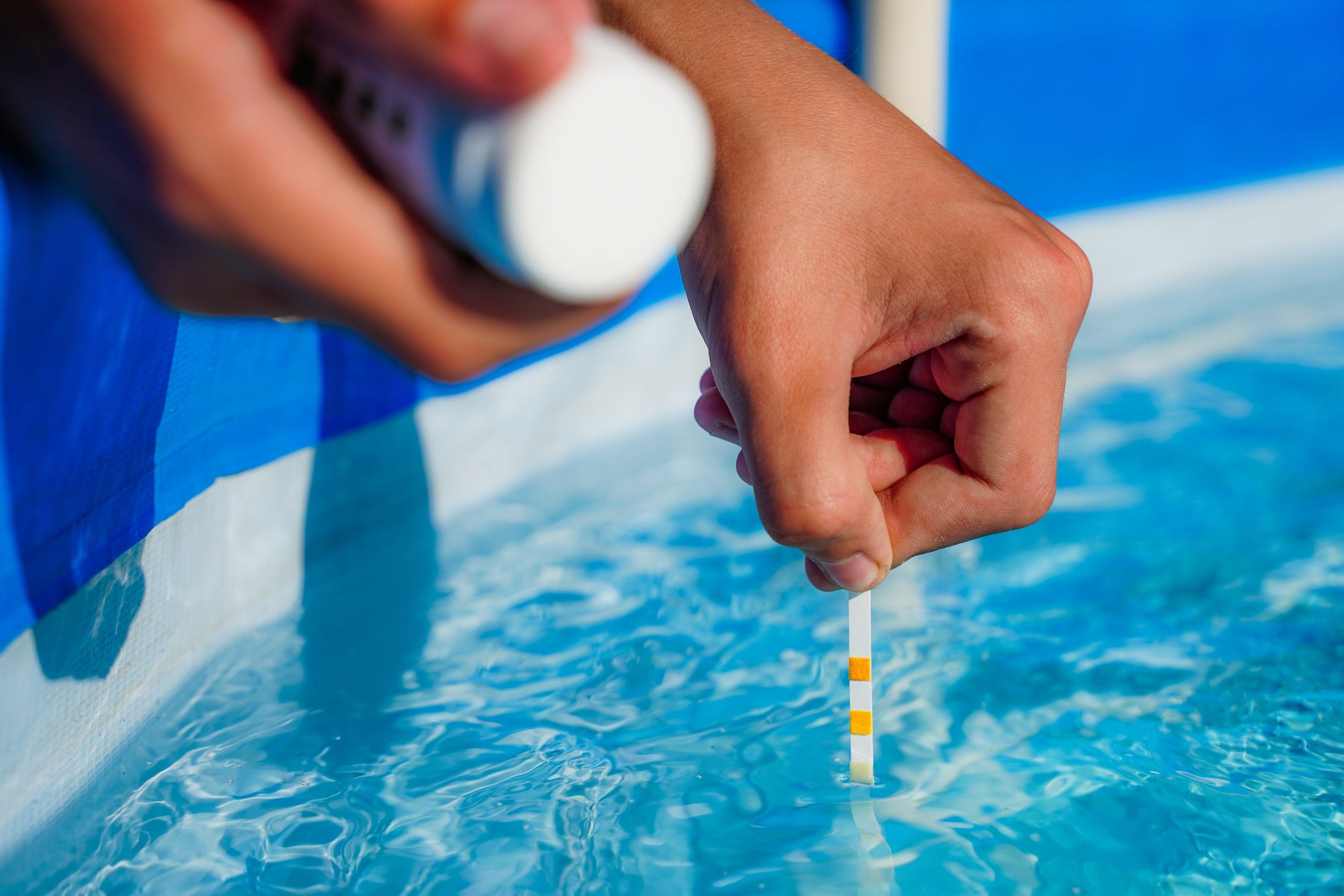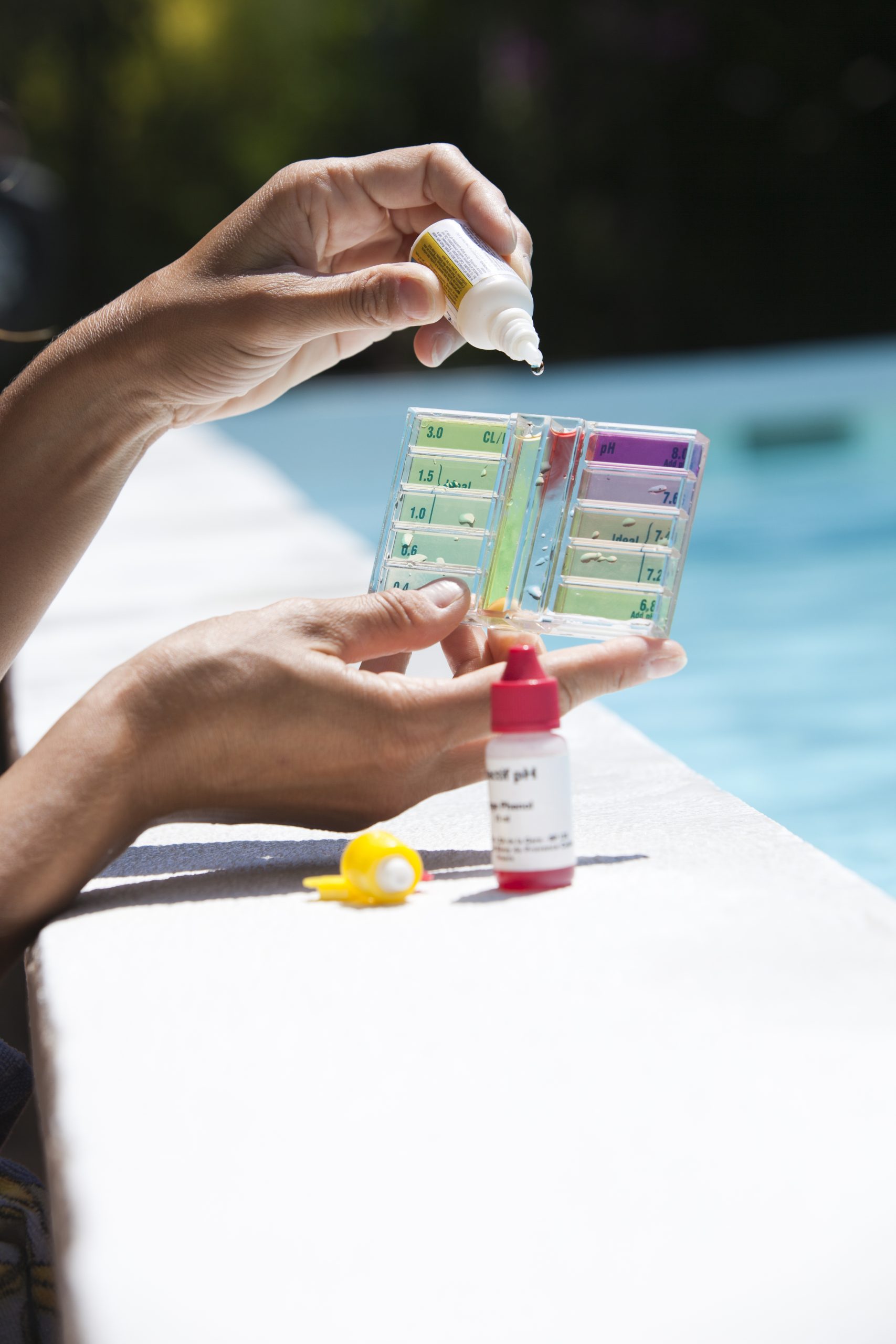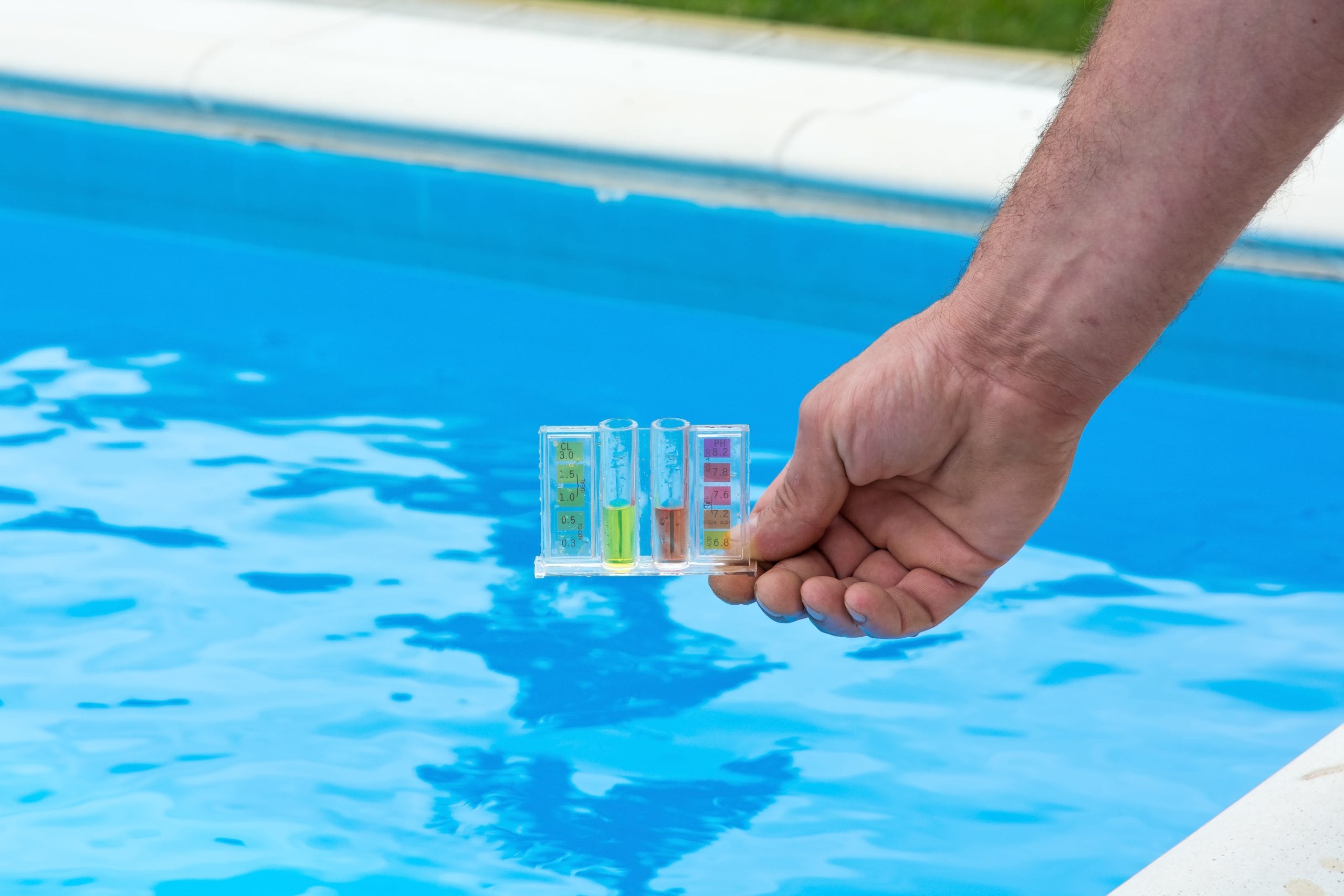Why Pool Water Testing Matters: Keep Your Pool Safe, Clear, and Ready to Swim

Testing your water isn’t just about keeping it clear—it’s about making sure it’s safe, balanced, and ready for swimming at any time.




What Does Pool Water Testing Actually Check?
pH levels measure how acidic or alkaline the water is. When pH is too high, chlorine stops working effectively, and you might see things like cloudy water or calcium build-up.
Low pH isn’t great either, and can cause corrosion and irritation to skin and eyes. Keeping the pH between 7.2 and 7.6 keeps your water safe and comfortable.
Chlorine is the main defence against bacteria and algae. Too little chlorine leaves the water unsafe, while too much can irritate skin and eyes. The ideal range is 1–3 parts per million (ppm) to keep water clean without overdoing it.
Alkalinity supports pH balance, stopping sudden changes that make pool care harder. A level between 80–120 ppm prevents pH from bouncing around and keeps the water stable.
Calcium hardness protects pool surfaces and equipment. Too little can corrode metal parts, and too much can lead to scale build-up. The target range is 200–400 ppm, depending on your pool type.


Why Regular Testing is So Important
Once these problems set in, they are both time-consuming and expensive to fix.
Testing also protects your pool equipment. Imbalanced water can wear down pumps, filters, and heating systems, leading to costly repairs or replacements. Proper testing keeps everything running smoothly and extends the life of your equipment.
More importantly, testing makes sure your pool is safe for swimmers. Unbalanced water can irritate skin, eyes, and even lungs, turning what should be a fun experience into an uncomfortable one.
Keeping the water nicely balanced ensures everyone can enjoy the pool without worry.




How Often Should You Test Your Pool Water?
During the warmer months or periods of heavy use, testing it twice a week is even better. Events like rainstorms or topping up the pool can throw off the balance, so testing after these is also a smart move.
While DIY test kits are great for quick checks, professional testing offers the most accurate results and can detect issues you might miss.
Catching problems early saves you time, money, and effort in the long run.

Keeping your pool water balanced doesn’t have to be complicated. At Dolphin Pools, we make pool maintenance easy with professional water testing and expert advice. With over 50 years of experience in Melbourne, we’re the trusted name for pool care and maintenance.
Whether you need to fix a water balance issue or simply want peace of mind that your pool is in top shape, we’re here to help.
Don’t wait for problems to appear—call Dolphin Pools today on (03) 9830 5744 and book your water test. Let us handle the details so you can focus on enjoying your pool!
